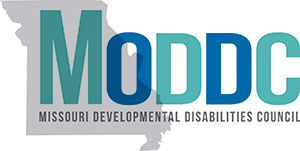Missouri Developmental Disabilities Council Quality Assurance Initiatives
The Administration on Developmental Disabilities defines Quality Assurance as meaning advocacy, capacity building and systemic change activities that result in improved consumer - and family - centered quality assurance that result in systems of quality assurance and consumer protection. The MoDD Council will work to ensure that people with intellectual and developmental disabilities will be free of abuse, neglect, sexual or financial exploitation and violation of their human rights as well as not subject to inappropriate use of restraints or seclusion. People should be self-determined and have opportunities for independence, productivity, and integration and inclusion in the community.
Current Council QA Initiatives:
Guardianship: The Council is engaged in efforts to increase awareness of options and alternatives to guardianship. Multiple trainings will be conducted around the state to assist in informing persons interested in this topic of the options and alternatives to full guardianship that exist. For information regarding these training opportunities, contact Emily Hartley or visit Thinking About Guardianship?
The Council is also participating in the MO-WINGS Taskforce that is currently working to revise and update the state's guardianship statute. This statute, which was created in 1973, has not undergone significant revisions since its inception.
People First of Missouri: People First is a strong self-advocacy group that supports its members to self-direct and support each other. For more information about People First contact Katheryn Sateger-Wilson.
Family-to-Family Network: The Council invests in the Family-to-Family Network that includes the Family-to-Family Resource Center and the Sharing Our Strengths mentoring program so that individuals, families and other stakeholders across the state have access to an information network and a means of linking with others with similar experiences as well as signing up to volunteer to use their advocacy skills to help others with developmental disabilities. For more information about F2F, contact the Missouri Developmental Disabilities Council.
Community of Practice: The Council is also involved in the National Community of Practice for supporting families of individuals with intellectual and developmental disabilities where Missouri is the mentor state that will help five states develop systems of support for families through the lifespan of their family member. For more information about F2F, contact the Missouri Developmental Disabilities Council.
Victimization Task Force: Individuals with Intellectual and Developmental Disabilities (I/DD) are 4-10 times more likely to be victimized than members of the general population. The Missouri Developmental Disabilities Council (MODDC) created the victimization task force to address issues associated with the prevention of sexual, physical, and fiscal victimization of individuals with I/DD. The task force generated several recommendations in 2017, addressing initiatives such as prevention and awareness, investigation and prosecution, identification and reporting, services and supports.
Task force members contribute in various ways including participating in work group meetings – usually via conference call, sharing relevant information and experiences, engaging in action items that are generated from task force or work group meetings, and share the work of the task force when attending community and/or professional meetings.
Current task force members include advocates, family members, People First of Missouri, Department of Health and Senior Services, Department of Mental Health, Missouri Protection & Advocacy, University Missouri Kansas City, Attorney General’s Office, Department of Justice, Department of Elementary and Secondary Education, Missouri Secretary of State’s Office, Federal Bureau of Investigation, Medicaid Fraud Control Unit, SB40 Boards, etc.
DHSS: The Missouri Department of Health and Senior Services (DHSS) investigates abuse, neglect, and exploitation of vulnerable individuals 60 and older and people with disabilities between 18 and 59. These individuals may live in the community or in long-term care facilities. Either way, they are unable to protect their own interests or adequately perform or obtain services necessary to meet their essential human needs (192.2400, RSMo).
Missouri’s Adult Abuse and Neglect Hotline responds to reports of abuse, bullying, neglect, and financial exploitation. If you suspect someone is being abused, bullied, neglected or exploited, call the hotline at 800-392-0210. The hotline operates 365 days per year from 7 a.m. to 12 a.m. Hearing-impaired persons may utilize Relay Missouri by calling 800-735-2466. Due to the possible need for mandated reporters to report a concern to the Central Registry Unit (CRU) during the hours of 12:00 a.m. and 7:00 a.m. (when the hotline is not in operation), a Mandated Reporter Form is available for use. For more information please click the following button.
Past Council Initiatives:
The Council is also excited to have been a part of a project which supports an on-line training program for direct support staff, the College of Direct Support. This project leads to better trained staff who are more likely to stay in the field.

